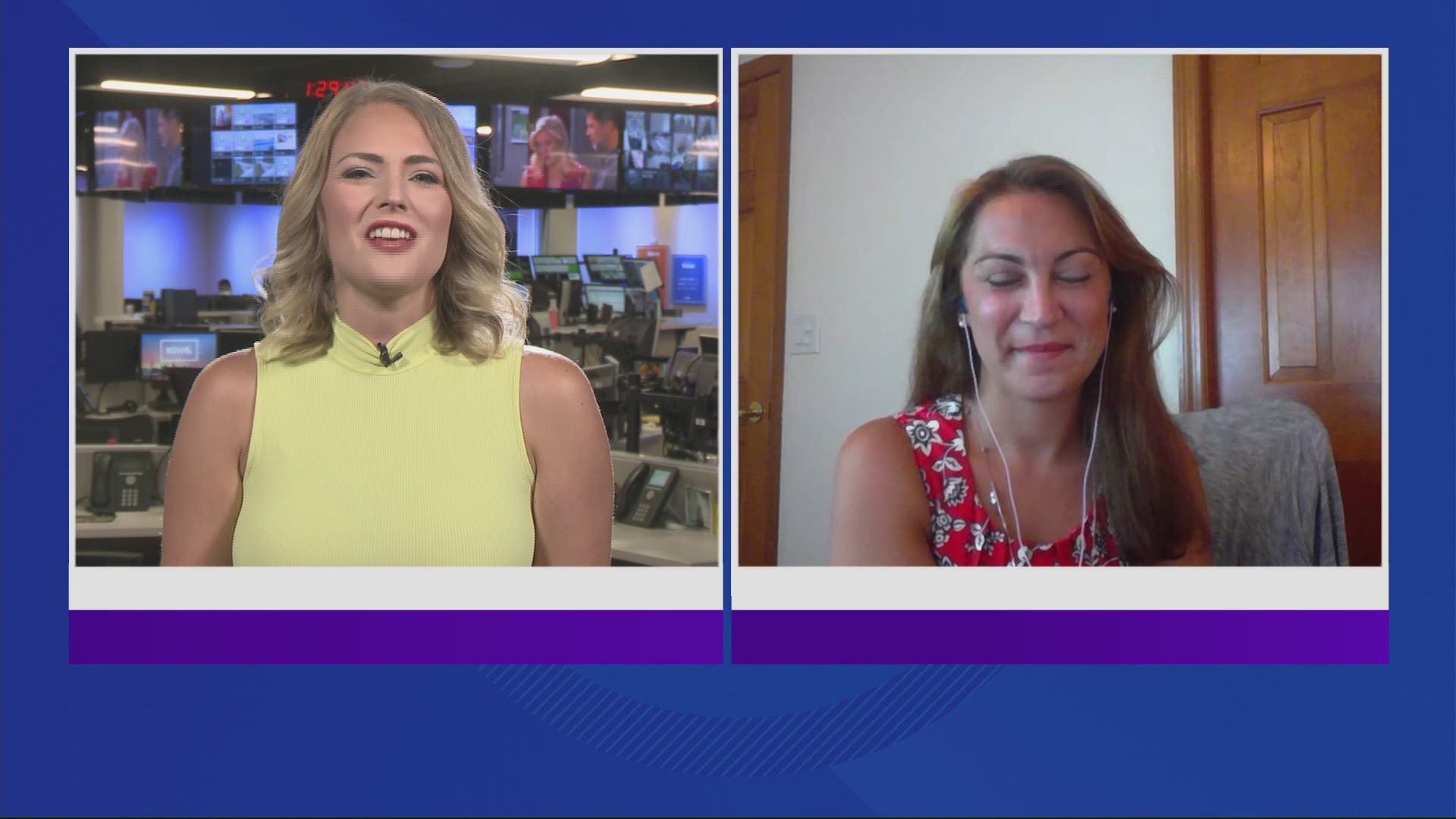PORTLAND, Ore — As summer quickly creeps into the fall, parents and their kids have a lot more on their minds than any August before. Faced with an uncertain school year ahead, KGW talked to Clinical Psychologist Dr. Stephanie Lee at the Child Mind Institute for some advice to help kids cope.
"I think that parents really do want to provide their kids with empathy and encouragement in relation to the uncertainty," Dr. Lee said. "So, they want to make sure that kids are feeling validated, feeling heard, making sure that we’re not inserting adult worries into kids," she said.
Looking at situations from your child's perspective if key, according to Lee.
"So, learning more about what is concerning to them and then really helping them understand that we’re going to move forward together, reminding them of times when things have felt uncertain or unsafe in the past and then how we’ve worked through those things successfully," Lee said.
These conversations look different for each family. Some children might already be sharing their feelings with their parents or guardians, others might need a little more encouragement.
"I don’t know that it’s something that you need to do every single day, but you want to be aware, you want to be monitoring how they’re feeling, how they’re thinking, any questions that they might have and making sure that you’re available in a very consistent way," Lee said.
The start of a new, unprecedented, school year is quickly approaching for kids in Oregon and Washington. While remote learning keeps up the educational aspect of schooling, in-person classes also offer opportunities for children's social and emotional development.
When trying to reconcile physical safety with a child's social interests, Lee says parents must first think about their unique family culture and needs, and to make sure that parents/guardians have a united decision.
"It’s a very difficult challenge and I think that parents, first and foremost, need to get together and make sure that they’re on the same page about what’s safe for them, what’s safe considering the culture of their family and then bringing that information to their kids, or adolescents, or teens," she said.
Lee says parents need to be clear, concise and consistent with their children about what is safe, what they're allowing and what they are not.
"Then we want to make sure we’re opening up a dialog with our kids, with our teenagers about what they miss, what they need and then finding creative solutions to collaborate with them to make sure that those things happen," Lee said. "We want to make sure that if kids are spending a lot of time on screens, but there’s a social aspect to it, maybe parents are being a little more lax about that for now."
Ensuring your child's mental health is being cared for starts with the parent's own well being. Lee says it's important for kids to have a strong emotional role model with kindness at the center.
"It’s such a challenge, right? I think that parents do want to make sure that they’re modeling for kids what they want to see back. So, I would encourage parents to be kind to themselves, be kind to their partner, be kind to teachers and staff, be kind to their kids: the more kind you are the more you’re going to see that back," Lee said.
Lee recommends finding a balance in dealing with tough situations but also seeking out the joy to amplify the positives in life, even in uncertain times.
"I’d say also, keep your sense of humor. Try to find some moments of levity and keep it light whenever you can. The more your able to do this for your child, the more that they will do it back and you’re kind of creating a beautiful culture in the household that is realistic and you can still manage challenges as they come up, but we can do it in our own way with some humor and not focus just solely on the things that are challenging. Also emphasizing the things that are positive and the things that we have to look forward to," she said.

